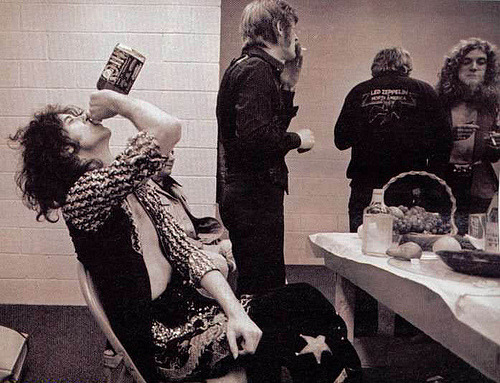This week has been a monster filled with to-do lists, late nights and early mornings, which is why I definitely should not have started Aziz Ansari’s new Netflix series, Master of None. And yet there I was last night, telling myself that if I just watched the first episode while eating dinner, it would be fine! Because how much could I get done when my hands were otherwise occupied by feta bread from Pizza House anyways? (Shout-out to my roommate for only slightly guilting me into stopping there for her student org’s fundraiser.)
If you’ve talked to me in the last 24 hours, you are probably not surprised that I am once again talking about this show, because I have grasped at so many straws today in order to bring it up in conversation. I’m not playing – I brought it up in a Women’s Studies class. To make a serious point. That’s how geeked I am about this show.
The first episode in the series, appropriately titled Plan B, starts off with a casual hook-up for main character Dev, played by Aziz, that culminates in an uber ride to the drug store to pick up the morning-after pill. The scene serves as an intriguing look at the lives of our generation and our reliance on technology, showing the two characters Googling whether or not his hook-up could get pregnant and then calling an uber X to pick them up, all while still undressed and under the covers.
The main character is then sent down a rabbit hole full of babies, trying to figure out if he should be thinking of settling down and starting a family. He attends a birthday party for his friend’s baby (but only for the bounce house, of course) where he gets a look at the beauty of parenthood, only to see the other side of the coin when he babysits his friend’s devilish children later in the day. When I say devilish….this woman’s 7 year old son took out his genitals at the grocery store and rubbed it on 30 boxes of frozen waffles because “it feels good!”
At the end of the day, Dev is left exhausted and the viewer is left with a more moderate view of parenthood, which is generous for a show created by Aziz, who spent half of his newest comedy show talking about how awful the concept of parenthood is. We learn that Dev is definitely not ready to have children (as alluded to by the numerous instances in the episode where his actions mirrored those of a child), but that parenthood in general is a collection of wonderful and hair-pulling experiences.
I went into this show expecting something larger-than-life out of a comedian who screams half of his punchlines (I love you Aziz, I promise I do), but what I was with was a show created by a super intelligent dude full of social commentary. He touches on some really interesting issues and brings a fresh take to some issues that some might think have been talked dry. It’s the kind of show that you start for the laughs and stay with for the message, which is why I think that it will reach a broader audience than some of his stand-up.
I would definitely recommend this show, so I’ll leave the trailer here:
(Shoutout to Dev Patel from Meet the Patels, and also Aziz Ansari’s real dad who plays his father on the show)








